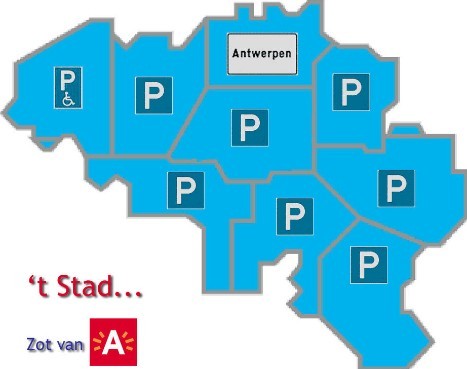This is not the case in Flanders and the Netherlands (maybe speaking Dutch turns you automatically into a bike-lover...), where each city center is swamped with bicycles. There are thus more bike lanes and awareness of bus and car drivers, who drive more carefully and often leave way for bikes (too much sometimes). De Lijn (Flemish bus company) often lowers its abonnement price, maybe because buses are not as popular as in Wallonia or as a general attempt to make the city less polluted. And let's be serious, "fiets" (bike) clearly keeps them fit! Know what I'm sayin'?
Bikes on a normal school day in Flanders
However there are some bad points to be noted with this massive use of bikes. As students often use them even when they could walk without problem from a place to another (especially when the city is small), not all of them are very careful while riding, which make them become more dangerous than cars. Indeed, they often ride in pedestrian places, not giving a crap about people walking. That's why you need to be careful when you walk to avoid being hit by a bike, but also when you ride, because policemen (often on bikes themselves) distribute fines to careless cyclists, so don't forget your lights at night and respect the highway code. Also, it is often difficult to find a park place for your bike, so you'll often have to let it stand in the middle of the pavement with a padlock, which is not so safe when you know that it has become a tradition in Flanders to steal wheels, lights or saddle, especially when you've been stolen yours.








